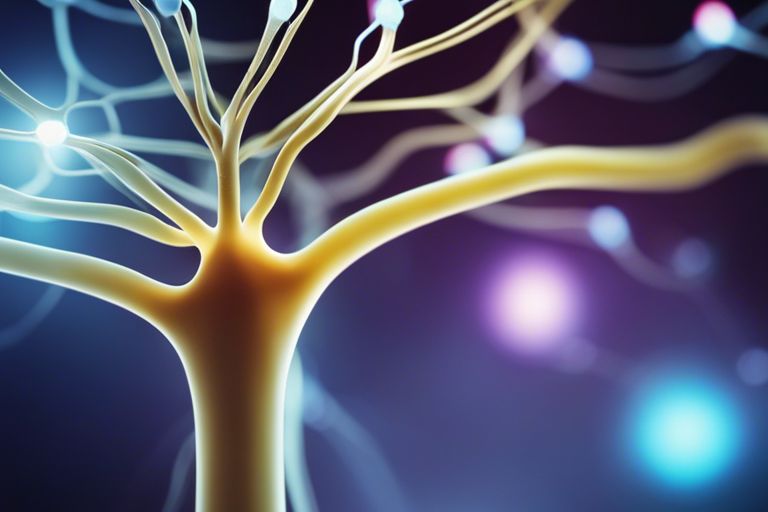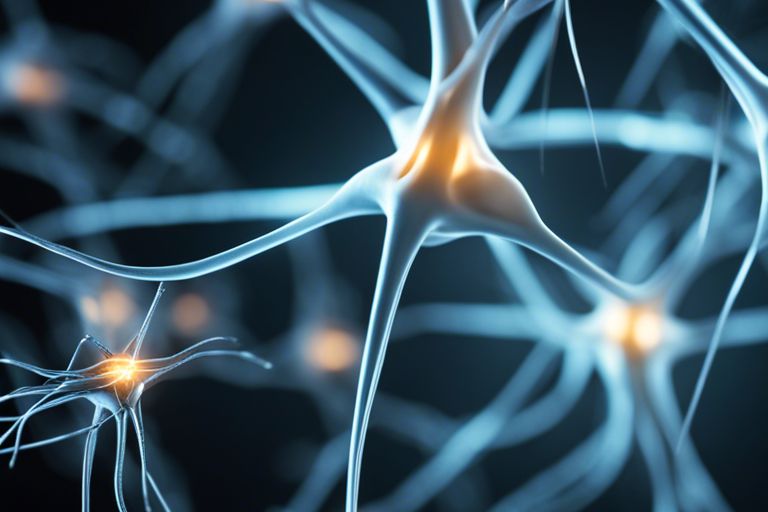Alleviate your anxiety with Transcranial Magnetic Stimulation (TMS) therapy. Curious about how this innovative treatment can bring relief? You’re not alone. Dive into the fascinating world of TMS and discover how it works to ease your anxiety symptoms in our latest blog post. If you’re wondering, “TMS Therapy for Anxiety: Does TMS Work for Anxiety?” click here to find out more!
TMS Therapy for Anxiety: Does TMS Work for Anxiety?
Key Takeaways:
- Neurotransmitter regulation: TMS modulates neurotransmitter activity in the brain, such as increasing serotonin levels, which helps to alleviate anxiety symptoms.
- Enhanced connectivity: TMS promotes better connectivity between brain regions involved in regulating emotions and stress, leading to improved emotional regulation and reduced anxiety.
- Non-invasive treatment: TMS is a non-invasive procedure that does not require surgery or medication, making it a safe and effective option for individuals seeking anxiety relief.

What is TMS?
Definition and History
To understand how Transcranial Magnetic Stimulation (TMS) works to alleviate anxiety, it’s necessary to know what TMS is. TMS is a non-invasive procedure that uses magnetic fields to stimulate nerve cells in the brain. The history of TMS dates back to the 1980s when researchers first started exploring its potential for treating various neurological and psychiatric conditions.
How it Differs from Other Therapies
History has shown that TMS is quite different from other therapies used to treat anxiety. While medications such as anti-anxiety drugs or antidepressants target neurotransmitters in the brain, TMS directly stimulates specific areas of the brain that are thought to be involved in mood regulation. This targeted approach can lead to more precise and effective results, with fewer side effects than traditional pharmaceutical treatments.
The Science Behind TMS
How Brain Function Affects Anxiety
Science shows that anxiety disorders are closely linked to the way your brain functions. When certain areas of your brain, such as the amygdala and prefrontal cortex, become overactive or underactive, it can lead to imbalances in neurotransmitters like serotonin and dopamine, which are crucial for regulating your mood and anxiety levels. This neurobiological process can contribute to the development and persistence of anxiety symptoms.
The Role of Neuroplasticity
To further understand anxiety and its treatment with Transcranial Magnetic Stimulation (TMS), it’s necessary to consider the concept of neuroplasticity. Neuroplasticity refers to your brain’s ability to reorganize itself by forming new neural connections in response to learning and experience. This phenomenon plays a key role in the effectiveness of TMS in alleviating anxiety symptoms by promoting adaptive changes in brain circuits associated with anxiety.
With the right stimulation, your brain can adapt and rewire itself to enhance emotional regulation and resilience, leading to a reduction in anxiety symptoms. TMS harnesses the power of neuroplasticity to modulate brain activity and promote lasting improvements in your mental health.
How TMS Targets Specific Brain Areas
Role Today, scientists have identified specific brain regions, such as the dorsolateral prefrontal cortex (DLPFC), as key targets for TMS in the treatment of anxiety. By gently stimulating these areas with electromagnetic pulses, TMS can modulate neural activity and restore the balance of neurotransmitters associated with anxiety disorders. This targeted approach allows for personalized treatment that addresses the root cause of your anxiety symptoms, offering a non-invasive and effective alternative to traditional therapies.
The precise targeting of specific brain areas with TMS enables a more direct and efficient modulation of neural circuits involved in anxiety regulation, leading to significant improvements in your symptoms and overall well-being. The unique ability of TMS to target and modulate key brain regions sets it apart as a cutting-edge treatment for anxiety disorders, with promising results for many individuals seeking relief from persistent anxiety.
The TMS Process
Unlike medication or traditional forms of therapy, Transcranial Magnetic Stimulation (TMS) is a non-invasive procedure that specifically targets the areas of the brain associated with anxiety. The TMS process involves precise magnetic pulses applied to the brain to regulate neuronal activity and restore balance in brain circuits linked to anxiety.
Preparation and Treatment Sessions
With TMS, your first step will be a consultation with a healthcare provider to determine if you are a suitable candidate for the treatment. If TMS is recommended, a personalized treatment plan will be created for you. During treatment sessions, you will be comfortably seated, and an electromagnetic coil will be placed against your head to deliver magnetic pulses to the targeted brain regions.
What to Expect During a Session
Sessions typically last around 30 minutes, during which you will hear clicking sounds and feel a tapping sensation on your scalp as the magnetic pulses are delivered. The sensation is generally painless, and you will be able to resume your daily activities immediately after each session. Throughout the course of treatment, you may experience mild side effects such as headache or scalp discomfort, but these are usually temporary and subside on their own.
The Importance of Consistency
Sessions are usually scheduled five times a week for several weeks to achieve optimal results. Consistency in attending all sessions according to your treatment plan is crucial for the effectiveness of TMS in alleviating anxiety symptoms. The repetitive stimulation of targeted brain areas helps reinforce positive changes in brain activity and improve overall mental health.
How TMS Affects Anxiety
Now that you understand the basics of how Transcranial Magnetic Stimulation (TMS) works, let’s examine into how it specifically affects anxiety. TMS has been shown to have a positive impact on anxiety by targeting and modulating the neural circuits in the brain that are involved in regulating mood and emotions.
Reducing Symptoms and Frequency
To start, TMS can help reduce the symptoms of anxiety and the frequency of anxiety attacks. By stimulating specific areas of the brain associated with anxiety regulation, TMS can help normalize brain activity and reduce the overactive response that triggers anxious thoughts and feelings.
Improving Mood and Cognitive Function
Mood and cognitive function are closely linked to anxiety levels. TMS can help improve your mood and cognitive function by enhancing the activity of neurotransmitters that regulate emotions and cognitive processes. This can lead to a more positive outlook, better concentration, and reduced anxiety overall.
This improvement in mood and cognitive function can have a significant impact on your daily life, making it easier to cope with stressors and navigate challenging situations without feeling overwhelmed by anxiety.
Enhancing Emotional Regulation
To further alleviate anxiety, TMS can enhance your emotional regulation skills. By targeting the areas of the brain involved in processing emotions, TMS can help you better regulate your responses to stressful stimuli and manage your emotions more effectively.
For instance, if you tend to have intense emotional reactions to certain triggers that exacerbate your anxiety, TMS can help you develop more adaptive coping strategies and reduce the intensity of your emotional responses over time.
The Benefits of TMS for Anxiety
Once again, let’s investigate into the various benefits of Transcranial Magnetic Stimulation (TMS) for alleviating anxiety. TMS offers a myriad of advantages that make it a compelling treatment option for those struggling with anxiety disorders.
Rapid Relief and Long-Term Results
Long-term relief from anxiety is one of the most significant benefits of TMS therapy. While some individuals may experience improvements after just a few sessions, the effects of TMS often extend well beyond the treatment period. By targeting specific areas in the brain responsible for regulating mood and anxiety, TMS can provide enduring relief even after the sessions have ended.
Minimal Side Effects and Risks
Benefits of TMS for anxiety also include minimal side effects and risks compared to traditional medications. TMS is non-invasive and does not require anesthesia, eliminating the potential for adverse reactions commonly associated with psychotropic drugs. This means that you can undergo TMS therapy without worrying about weight gain, sexual dysfunction, or other unpleasant side effects that often accompany pharmaceutical treatments.
To fully understand the benefits of TMS for anxiety, it’s important to consider the minimal risks involved in this innovative therapy. Unlike medications that can lead to dependency or withdrawal symptoms, TMS offers a safe and effective alternative for managing anxiety without the fear of long-term consequences.
Increased Self-Esteem and Confidence
SelfEsteemWhen you undergo TMS therapy for anxiety, you may experience a significant boost in self-esteem and confidence. As your anxiety symptoms diminish, you’ll likely find yourself more capable of engaging in social interactions, pursuing your goals, and facing challenges with a newfound sense of conviction. This increase in self-assurance can have a profound impact on various aspects of your life, leading to improved relationships, performance at work, and overall well-being.
MinimalBy choosing TMS for anxiety treatment, you’re not just addressing your symptoms – you’re also investing in your self-esteem and confidence. Overcoming anxiety with TMS can empower you to take control of your life and break free from the limitations that once held you back, allowing you to embrace new opportunities and experiences with a greater sense of self-assurance.
Who is a Good Candidate for TMS?
All individuals suffering from treatment-resistant anxiety may benefit from Transcranial Magnetic Stimulation (TMS) therapy. TMS can be a suitable option for those who have not found relief from traditional treatments like medication and therapy. It is also a potential choice for people who prefer non-invasive procedures with minimal side effects.
Identifying Suitable Candidates
Any individual with a diagnosis of anxiety who has not responded well to other treatment methods may be a suitable candidate for TMS therapy. It is necessary to consult with a qualified healthcare provider who can assess your specific situation and determine if TMS is the right course of action for you. Your healthcare provider will consider factors such as the severity of your anxiety, your overall health, and any other treatments you may have tried in the past.
Contraindications and Precautions
One crucial consideration for TMS therapy is the presence of metal objects or devices in the body. If you have any metal implants, such as pacemakers, stents, or cochlear implants, you may not be a suitable candidate for TMS due to the magnetic fields involved in the treatment. Additionally, individuals with a history of seizures or certain neurological conditions may need to proceed with caution when considering TMS therapy.
Precautions should also be taken for individuals who are pregnant or have a history of substance abuse. These factors can impact the effectiveness and safety of TMS therapy. It is necessary to discuss any potential risks and concerns with a healthcare provider before starting treatment.
Working with a Qualified Practitioner
Working with a qualified healthcare provider who has experience in administering TMS therapy is crucial for ensuring the safety and effectiveness of the treatment. Your practitioner will conduct a thorough evaluation to determine if you are a suitable candidate for TMS and will tailor the treatment plan to meet your specific needs. They will also monitor your progress throughout the course of the therapy to make any necessary adjustments and ensure the best possible outcomes.
Plus, a qualified practitioner can provide you with information and support to help you understand the TMS process and what to expect during treatment. They can address any concerns or questions you may have, making the experience as comfortable and beneficial as possible.
Final Words
Following this exploration of how TMS works to alleviate anxiety, you now have a better understanding of this innovative treatment option. By targeting specific areas of the brain associated with anxiety, TMS can help regulate neural activity and improve symptoms over time. If you or someone you know is struggling with anxiety, it may be worth discussing TMS as a potential therapy option with a healthcare provider.
Q: How does transcranial magnetic stimulation (TMS) work to alleviate anxiety?
A: TMS works by using magnetic fields to stimulate nerve cells in the brain, particularly in areas associated with mood regulation. By targeting and modulating these brain regions, TMS can help regulate the neural circuits involved in anxiety, ultimately reducing symptoms.
Q: Is TMS an effective treatment for anxiety disorders?
A: Research has shown that TMS can be an effective treatment for various anxiety disorders, such as generalized anxiety disorder, social anxiety disorder, and obsessive-compulsive disorder (OCD). Many studies have demonstrated significant reductions in anxiety symptoms following TMS treatment.
Q: Are there any side effects or risks associated with TMS for anxiety?
A: While TMS is generally considered safe, some individuals may experience mild side effects such as scalp discomfort, headache, or tingling sensations during or after the treatment sessions. Serious risks are rare, but it’s important to discuss any concerns with a healthcare provider before starting TMS therapy.







